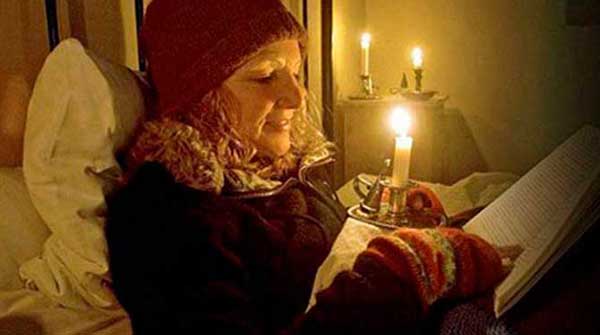 It’s bone-chilling cold, carbon tax costs are rising and politicians don’t seem to give a flying fox foot about it.
It’s bone-chilling cold, carbon tax costs are rising and politicians don’t seem to give a flying fox foot about it.
Prime Minister Justin Trudeau is the biggest carbon tax cheerleader in North America and the Conservative Leader Erin O’Toole has grabbed the pom-poms, too.
Toronto and Ottawa just got a huge dump of snow, and wind chills plunged to minus 40 degrees. The Prairies are bearing minus 44 degree nights. Even Vancouver’s oceanside joggers were recently hit with a big wallop of the white stuff and minus 20 wind.
If Canadians weren’t heating their homes or running their vehicles with natural gas, furnace oil, propane, gasoline and diesel, they would quickly freeze to death.
The carbon tax hits all of those fuels.
Right now, the first federal carbon tax is $40 per tonne, costing nine cents per litre of gasoline, 11 cents per litre of diesel and eight cents per cubic metre of natural gas.
It costs about $7 extra to fill up a minivan, $112 to fill a big-rig truck’s double tanks with diesel and more than $200 extra to heat a new home with natural gas.
It’s more expensive if your house is older, or if there’s a long cold snap, or if you have to commute a long distance.
In British Columbia, carbon tax costs are generally double because we have two carbon taxes out here.
The second carbon tax is a government fuel standard that’s tucked into regulations, and it makes gasoline and diesel cost more. It adds about 17 cents per litre of gas and 19 cents per litre to diesel.
That means truckers are paying about 30 cents per litre in carbon taxes for their diesel. That costs them about $300 extra to fill up their double cylinders.
It would be good for a Member of Parliament to look them in the eye and say the added carbon tax cost is unfairly adding to their current burdens and that they will fight to get rid of it.
But the current Conservative Party is a carbon tax pusher.
While a few members have spoken out and opposed the carbon taxes, notably MP Arnold Viersen and Conservative Senator Denise Batters, the official Opposition is giving the government a free pass on carbon taxes.
It’s going to get worse.
The federal carbon tax is set to jump up to $50 per tonne this April, and it will skyrocket up to $170 per tonne within eight years.
That means harsher punishment for Canadians for driving to work and heating their homes.
Those hikes will ultimately put the first carbon tax up to more than 37 cents per litre for gasoline, 45 cents per litre for diesel and 32.8 cents per cubic metre for natural gas.
In B.C., with its two carbon taxes on gas and diesel, it will cost a family about $40 extra to fill up their minivan.
An elderly lady from East Hawkesbury, Ont. sent the Canadian Taxpayers Federation her propane heating bill last winter. She paid $44.47 in the carbon tax for just one month. She will be paying $252 for that same amount of fuel once the federal carbon tax is up to $170 per tonne.
Those who think they will be saved by rebates giving them back more than they paid out should be warned that average working people don’t get rebates in B.C.
The payments evaporate when a working couple hits $59,565 per year, far below the provincial average working household income.
B.C. has been the template for the Trudeau and O’Toole carbon taxes, so it’s hard to believe the federal rebates won’t fade away in the future.
Canadians fighting to afford the inflated costs of the basics will need to honk their horns louder to wake up their six-figure-salaried politicians.
Kris Sims is the B.C Director of the Canadian Taxpayers Federation.
Kris is a Troy Media Thought Leader. For interview requests, click here.
The opinions expressed by our columnists and contributors are theirs alone and do not inherently or expressly reflect the views of our publication.
© Troy Media
Troy Media is an editorial content provider to media outlets and its own hosted community news outlets across Canada.

